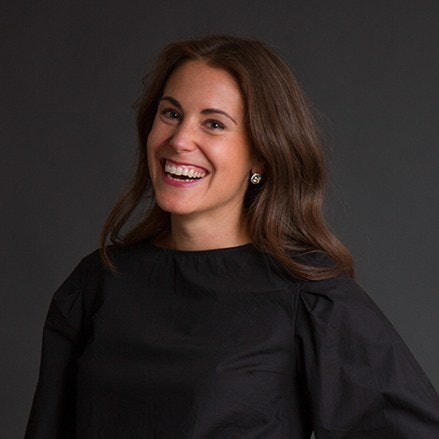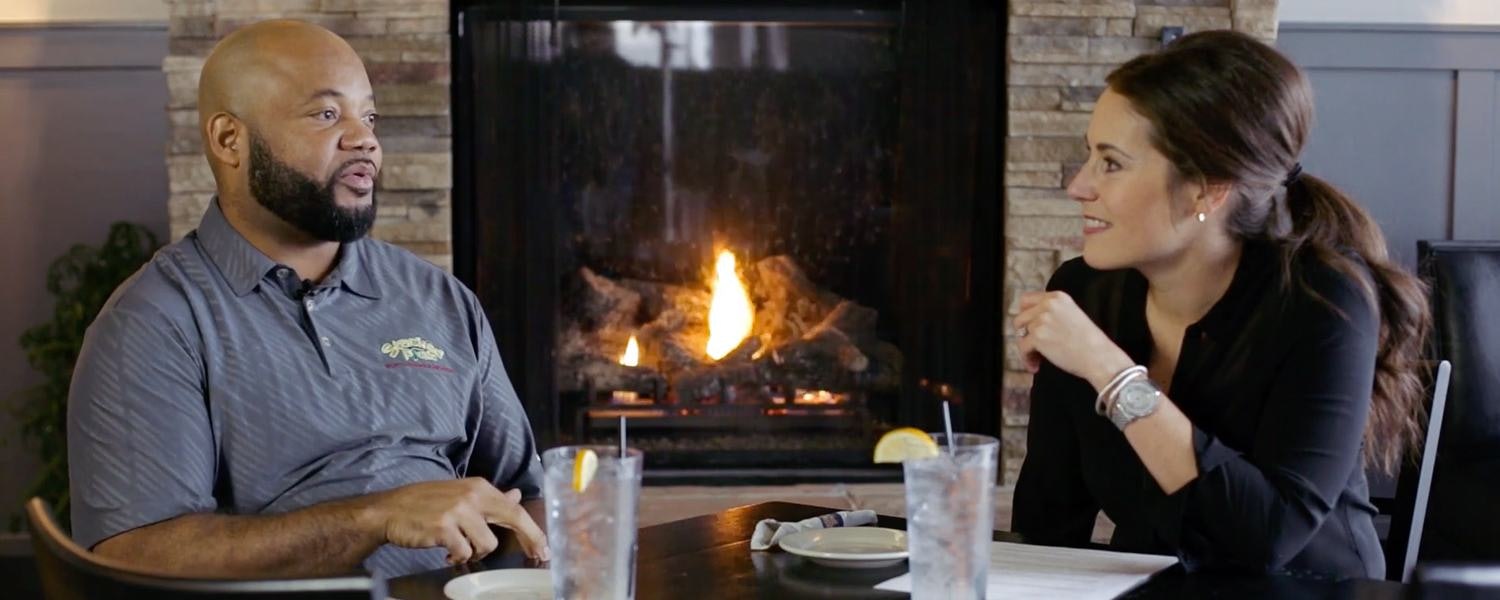Gary Brackett never took playing in the National Football League for granted. That’s because he had to work incredibly hard for anything he ever wanted.
He was a walk-on at Rutgers University who had to prove his worth just to get a college football scholarship. He wasn’t selected in the NFL Draft either, but impressed the Indianapolis Colts enough that they signed him as a free agent in 2003. And, well, you know the rest.
Gary became a defensive stalwart as a linebacker for the Colts. He played in two Super Bowls during his nine seasons with the team, winning a ring in Super Bowl XLI alongside Peyton Manning, Marvin Harrison, and Reggie Wayne.
In sitting down with Gary, what impressed me the most is his motor—what he calls his “walk-on mentality.” While it would be easy for him to sit back now that he’s retired from professional football, he continues to push himself every single day as a husband, father, and businessman. He’s continuing his career as a restaurateur with the Stacked Pickle and has published a book that he wants to turn into a movie. And he’s teaching his kids what it means to be competitive.
Gary and I talked about what’s truly important in life, what it means to be a servant leader, maximizing the potential of others, and what he’s learned from his work in the restaurant business—including the adversity of having to close Georgia Reese’s.
Gary Brackett’s Bold Story
Download the full interview transcript here
My 10 takeaways from the interview:
1. “Hard work beats talent, when talent doesn’t work hard.”
“One thing that I’ve always been is extremely hardworking. I have the ability to wake up at like 5, get on the computer at 6, knock out something, 8 still going, and then 8 or 10 at night and I’m like a second wind, still going….
“I just take it for granted that you have this motor. Same thing in football where I’m just going and going and going. And I think that’s really my superpower because if I want something, I’m going to go get it.
“Growing up, anything that I wanted I had to fight for. […] We shared clothes. So it was like if you wanted to wear something first, you had to duke it out. So just growing up in that type of environment, it just made you tough, man. It made me really appreciate everything that I get, and I know with hard work anything is possible.
“I always had what was called [a] walk-on mentality. So I wasn’t a recruited athlete at college. I had to walk on and earn my scholarship. I wasn’t a draft pick in the NFL. I was a free agent, so I had to earn it. So, I really didn’t take it for granted that I was there.
“So many people think of it as their right to be in the NFL and play. And I’ve always thought of it as a privilege. I knew from day one that the NFL is not there for long. I knew every off-season it was my mission to do some type of internship to educate myself on what I wanted to do next. So then when I finished with the game, I would be prepared to have a lasting impact and try to transition successfully because I was prepared.”
2. Hard knocks are serious motivation.
“At a very young age, I used to get beat up by my brothers playing football, being the youngest of four boys.
“So I’m in sixth grade playing high school football games. So then with sixth-graders, it’s just like, ‘Come on, man, I just tackled the star running back in the backyard.’ So for me, I always felt privileged when I played against people my age, like man, let me take the leadership. Since I’m one of the better kids out here, let me show you how. And I think for me what was great was playing different sports…. I learned to be a better leader in football because at basketball I was just okay.”
3. Servant leaders maximize the potential of others.
“My whole family was just about servant leadership, and they would literally give up their last so someone else could have something….
“One thing is they would always say, ‘Lazy people work the hardest.’ That was because you had to do it two or three times before you got it right. So people always [are] thinking about taking shortcuts out, but really if you do it right the first time then you’ll be good. It’s the whole idea of how you do anything is how you do everything. It’s the whole idea of have a purpose, stand for something. If you’re going to commit to something and stand for something, do it to the best of your ability or don’t do it at all.
“There’s going to be adversity. So now, I was able to understand the adversity and then understand like, ‘Look man, maybe you can’t knock the guy on his back, but just give me two seconds. Can you give me two seconds?’ Because everyone thinks people have this infinite ability to maximize their potential. They do, but if they maximize their potential, and their potential might not be what you need, it’s all they have.
“And in sports in general, there’s no one else coming in, right? Especially [in] high school, like he’s the left tackle, but there’s no other people, so we had to deal with what he could do. So my thing has always been: How do I maximize everyone’s individual potential?”
4. Treat the janitor like the CEO.
“So the show had a religious undertone and then at the end of the show, the guy was doing his monologues and he looked at the crowd and he’s like, ‘Jesus, is that you? Is that you?’ So all the lights come down, and then a spotlight comes and here comes this homeless guy that was outside, walks across the stage, and I was just like—and you could just see people’s mouths just wide open. And then the whole—you don’t know when [Jesus] is coming back, what he’s going to look like, so I just had the mentality early on like I treat a janitor like I do the CEO.”
5. Bloom where you’re planted.
“I think [the reason I stayed here in Indy] was the social capital. It was the fact that I could pick up a phone and probably get a meeting with anyone in the state, from the governor to the CEO of any company. […] It’s just the people part of me that really drives me and makes me want to succeed and help pay it forward and reach back and lift others up.”
6. Find a path with a playbook.
“My first job was as a dish boy. […] I think I learned a very valuable lesson of delegation and teamwork. And I’ve always been fascinated by the restaurant industry. When I was finished playing, I wanted a way to monetize my brand; people knew me and they like me, but how can I make revenue off of that? Restaurants were a great place—and franchise in particular. While Stacked Pickle wasn’t a franchise when I purchased it, I’ve always had the idea to turn it into a franchise because of how simple it is. And there’s really a playbook.”
7. Service makes the restaurant.
“So what makes you different? Yeah, your food is good and everything else, but what type of connection or user experience do I have? And if we have a lot of happy servers and managers greeting tables, being the life of the party, we walked about the Oz moment when everything is perfect and someone is greeting you at the door and your order is coming out and your server is right behind them. We’re just trying to create a lot more of those moments within our restaurants.”
8. Sometimes addition requires subtraction.
“I think a place where I failed at Georgia Reese’s was design. My youngest daughter’s name is Georgia Reese and all my buddies were like, ‘Hey, are you going to be there?’ So I tried to make it all about me. I’m there and I’m greeting tables and everything, but that was exhausting. And it wasn’t a successful business model….
“So many times we look at our lives and think when we’re not getting our desired result that we need to add more things to it, when really we probably need to take some things away.
“I think it was going to do much more harm to my brand than good by not consistently showing up. […] My decisions are based on the numbers. […] Stacked Pickle just won out.
“The one thing I’ve always prided myself by is having an emotional IQ…. I was like, man, [keeping Georgia Reese’s] doesn’t make a lot of sense. I’m burning the candle at both ends, trying to do this, be here at these times and then be home with my family. And it was like, man, something has to suffer.
“One thing about money, I feel like, is that you can always get it back. But I feel like some of those relationships with my kids growing up and things like that, those things I didn’t want to give up….
“I think Stacked Pickle scales, and Gary Brackett doesn’t. So it’s humbling, but that’s why my name is not plastered all over the place. Our brand is that we have good food, great service, a great value proposition, and that’s why we’re successful. And I’m a bonus to that; I’m just not the main entrée.”
9. Know who you are. And enjoy the ride.
“I’ve always been able to separate who I am and what I do. And I think when people get in trouble is when what they do becomes who they are, and then if that’s no longer there, then they’re in an identity crisis.
“[My advice to my 23-year-old self] would just be like, ‘Slow down, young fella.’ And it’s like you want to do everything and take on the world and buy everything, and none of that stuff matters…. So it was really the perspective of less is more…less of material things and more relationships.”
10. Dream big. Then make it happen.
“I just signed up with this development company to franchise [the Stacked Pickle] and take us nationwide, even international….
“A lot of people I think kid themselves by thinking the person they are today is going to be the person they need to be to fulfill their dreams, and it’s not. There’s a lot of hard work that you have to develop, another skillset, some more ability to learn….
“In my speeches, I always say, ‘Who is your role model?’ And I’m just like, ‘Me in five years, me in 10 years.’ Because in my mind I’m chasing this person…of what I could be, and it’s exhilarating. But I know in order to get there, I’m not going to be able to take weekends off, I’m not going to be able to not read that book, not be engaged, not be connected, not go to that conference. So all of these things are a byproduct of who I’m chasing and who I want to become. And like I said, I’ve never been afraid of hard work.”
More Bold Stories to Dive Into
Quinn Ricker on Transforming His Family Business
CMO Turned VC Investor Tim Kopp on the Job of a Leader
CMO Turned VC Investor Tim Kopp on the Impact of Employer Branding
CMO Turned VC Investor Tim Kopp on Why Work-Life Balance is Dead
CMO Turned VC Investor Tim Kopp on How to Balance Brand and Demand Generation





